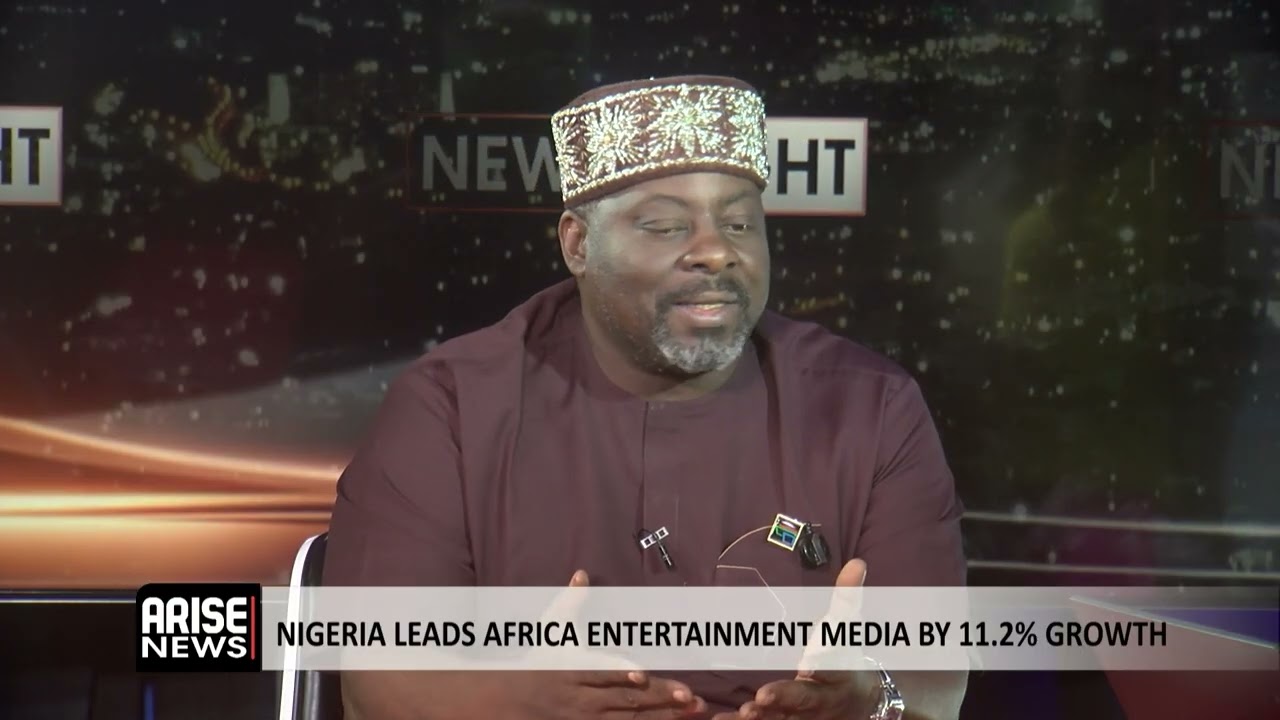
The Director-General of the National Council for Arts and Culture (NCAC), Obi Asika, has said Nigeria’s creative and cultural industries are leading Africa’s entertainment growth, with the sector projected to reach $100 billion by 2030.Speaking in an interview with ARISE News on Friday, Asika said the latest PwC report placing Nigeria ahead of other African nations with an 11.2% growth rate in 2024 only reaffirmed the strength and potential of the country’s entertainment and media ecosystem.“I think the PwC numbers are saying $25 billion by 2025, but for us in the sector, we’re trying to get to $100 billion by 2030,” Asika said.
“We just completed a significant mapping of the sector for the very first time, supported by Big Win Philanthropy, covering ten sectors. Our target is to add two million jobs by 2030, but the data shows we can actually add up to three million.”
The NCAC boss said the report underscored how the creative industry continues to lead Nigeria’s economy even in difficult times, noting that technology remains the key driver of scale.
“Technology enables scale, but can you imagine a digital platform without our content? It’s dead. This sector animates everything — news, music, entertainment, podcasts, art — all come from it. That’s why these PwC numbers and even Spotify’s figures show how powerful the sector has become,” he said.
Asika revealed that Spotify paid Nigerian artists ₦58 billion in 2024, with over 1.2 million Afrobeats playlists hosted on the platform — a sign, he said, that Nigerian content has fully validated itself on the global stage.
“Our music is no longer in the phase of validation — it’s already validated,” he added.
However, Asika warned that to sustain the boom, Nigeria must invest in infrastructure, regulation, and local platforms to ensure artists and creators benefit directly.
“We want to see more domestic digital platforms built. There’s nothing wrong with YouTube, TikTok, or Instagram, but we must develop our own ecosystem and capture our own value,” he said.
“The key question is retaining that value domestically. A mix of policy, digital and physical infrastructure investment will take us there.”
Highlighting Nigeria’s immense creative talent, Asika said soft power through the arts had already proven its worth globally.
“Nigerians need to be celebrated. Our creativity has penetrated everywhere with very little investment. Government can’t claim to have done much yet — maybe we’re just coming to the party,” he said.
“There’s talent everywhere — in Kafanchan, Onitsha, Enugu, Kaduna, Ibadan — not just in Lagos or Port Harcourt. The question is how to create platforms and give opportunities for exposure and growth.”
Asika also spoke about preparations for the 2024 National Festival of Arts and Culture (NAFEST), scheduled to hold from November 22nd to 29th in Enugu State.
“Come to Enugu, 042!” he said enthusiastically. “Governor Peter Mbah has promised it will be the biggest and best ever. We’re expecting all 36 states and the FCT, and Katsina is even bringing 100 horses for the first-ever Derba in the southeast.”
“People don’t even realise that the Derba is the same as the Ofala or Ojude Oba — moments when the king comes out to greet his people. That’s why our theme this year is Connected Culture.”
The NCAC DG also expressed excitement about the recently reopened National Arts Theatre in Lagos, describing it as a game-changer for the sector.
“It’s a world-class venue, and once programmed properly, it’ll transform the landscape. My colleague Tola Akerele already has nine months of programming lined up, and from November 1st, you’ll start seeing what’s coming,” Asika said.
He concluded by reaffirming his optimism about Nigeria’s creative future.
“Our sector is the face of Nigeria’s future economy. Once we capture the value we create, we’ll not only dominate Africa but the world.”
Boluwatife Enome

